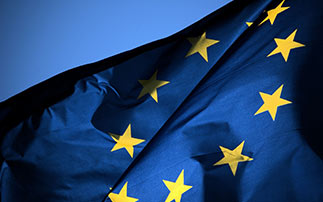Sentinel 1A, the first satellite dedicated to realizing the objectives of the Copernicus programme, was put into orbit after a successful launch at 11pm on April, 3rd from Europe’s spaceport at Kourou, French Guiana. This was the first step amid a series of five successive satellites launches aiming at providing Europe with independent and reliable data on earth observation until 2040.
As the culmination of a longstanding paneuropean effort on satellite and space technologies, this launch of Sentinel 1A marks the opportunity to focus on the current European financial framework for cooperation in space-related matters.
The rationale for EU-funded programmes in the area of space
Space systems are not only a core asset for Europe’s security and geostrategic power, it also helps ensure citizen’s welfare and European economy as a whole, as they optimize all sorts of applications and services used in everyday-life economy. Applications stemming from space research are instrumental in dealing with emerging societal challenges, such as global warming or the impact of increasingly hazardous weather conditions on agriculture and citizen’s security. In addition to ensuring that Europe’s industry remains competitive, paneuropean funding in space research helps leverage research and innovation in a wide array of other technologic sector. Indeed, the trickle-down impact of space innovations on other economic sectors and industries is well documented, from transports through urbanism to agriculture.
Leveraging investments in space-related researches and innovations
In this respect, European support to the ongoing development of the space industry is mainly provided along financial programmes that help leverage funding for paneuropean research and development projects without encroaching on Member states sovereignty regarding space-related matters. This approach helps avoiding research overlaps between Member states as well as making the most of synergies between the capacities of European stakeholders involved in space activities. As for the 2014-2020 programming period, European funding for space will be channeled through the Horizon 2020 programme, the Galileo programme, and the Copernicus programme.
Copernicus, Galileo and horizon 2020: a wide set of space-related initiatives eligible for funding
Copernicus, previously known as GMES (Global Monitoring for Environment and Security), is the European Programme for the establishment of a European capacity for Earth Observation. It provides grants linked to ensuring a regular observation of Earth sub-systems, the atmosphere, oceans, and continental surface. Copernicus is thought of as a vehicle for economic growth, by encouraging SMEs to provide services for end-users. The core task of Copernicus consists in supporting the manufacturing and the launch of a series of satellites called “sentinels” as well as in the setting up of operational services aiming at converting earth observation data in directly usable information products.
As for the Galileo programme, it will focus on establishing and operating the first global satellite navigation and positioning infrastructure specifically designed for civilian purposes. The UE will launch several calls for tenders on IT technology networks, studies and technological activities required for deploying and operating the system established under Galileo.
Last but not least, a wide set of space-related projects will receive funding under Horizon 2020, the framework programme for research, development innovation. Such projects are expected to focus on the industrial and commercial uptake of Earth Observation data and of applications in satellite navigation. In this respect, several Horizon 2020 projects are expected to support the objectives of and build synergies with the Galileo initiative. More generally, cooperation activities co-financed by Horizon 2020 will enhance the development of appropriate technologies and services, necessary for the development and exploitation of new systems, as well as encourage both the research community, and the private sector to intensify their efforts and investments in the space sector. Most Horizon 2020 space-dedicated projects and call for proposals will fall under the Leadership in enabling and industrial technologies (LEIT) strand of the “Industrial Leadership” priority.




